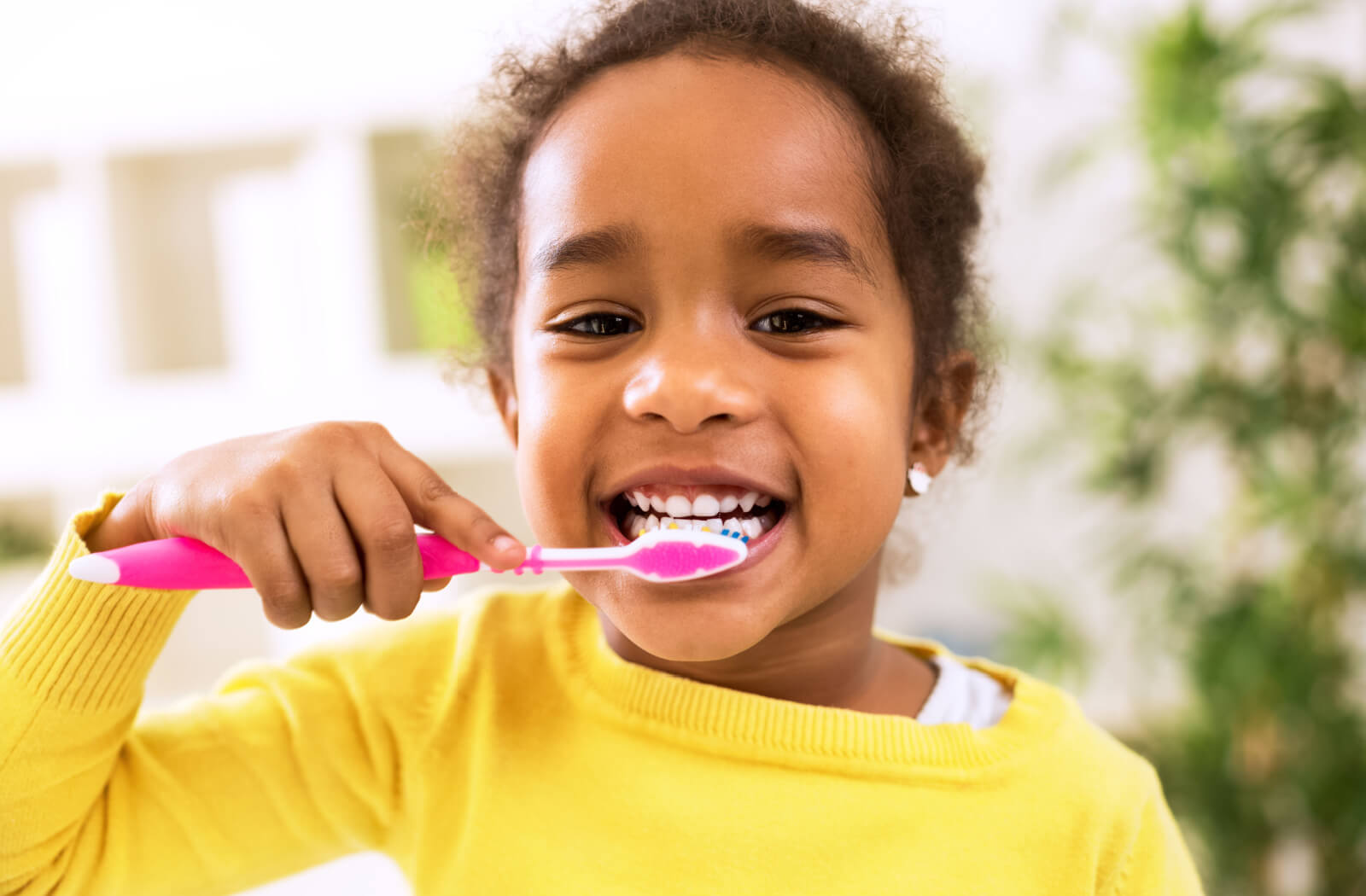February isn’t just about Cupid’s arrows and Valentine’s candies; it’s also a time to remember the importance of healthy smiles for our little ones—it’s National Children’s Dental Health Month! For parents, it’s a month that beckons the focus on their child’s oral well-being.
National Children’s Dental Health Month is an initiative to raise awareness about the importance of oral health for children. The month-long observance aims to remind families that children should adopt good oral health habits early, improving their chances of having healthy teeth and gums.
The Importance of Dental Health for Children
From the first baby tooth’s cameo to the adult arrival of a sparkling set of pearly whites, dental health is a journey that begins in childhood.
As the foundation for lifelong oral health, the early years play a pivotal role in setting the stage for strong teeth and healthy habits. Neglecting this crucial phase can lead to a cascade of dental challenges, both immediate and lifelong.
As a parent, being well-informed about children’s dental health is key to guiding your little ones toward a future filled with shiny, happy smiles.
The Basics of Children’s Dental Health
Dental care often isn’t on a parent’s radar until after those first little teeth make an appearance.
However, the Canadian Dental Association recommends that children have their first dental visit by the age of 1 or within 6 months of the first tooth’s appearance.
This initial checkup is about more than just looking for cavities—it’s an opportunity for parents to learn valuable information about oral hygiene, healthy dietary habits, and the benefits of fluoride.
The Risks of Overlooking Oral Care
A common misconception is that cavities in baby teeth are not a big deal since they fall out anyway. Yet, untreated cavities can lead to pain, infection, and negatively impact the child’s permanent teeth.
Early dental visits set the tone for a child’s overall dental health by allowing your dentist to address issues swiftly and implement preventive measures from the outset.
Forming Lifelong Habits
Establishing good dental hygiene habits from a young age is the cornerstone of a child’s oral health. It’s not just about making sure that teeth are brushed and flossed regularly, but also about making those routine checkups to the dentist something that your child looks forward to rather than dreads.
Tips for Maintaining Healthy Teeth
Healthy habits start early! You can set your child up for success by teaching them oral care habits like brushing, flossing, and eating tooth-friendly foods.
Brushing & Flossing

Proper brushing and flossing are the dynamic duo in the fight against plaque, cavities, and gum disease. For children, the right techniques should be implemented early on. This includes using a soft-bristled brush and toothpaste with fluoride. As for flossing, it’s a step that’s often forgotten but equally important for cleaning between the teeth, where a toothbrush can’t reach.
The Right Tools for Tiny Teeth
A toothbrush with a small head and soft bristles is ideal for children. A rice-sized amount of fluoride toothpaste for toddlers and a pea-sized amount for children aged 3 to 6 is ideal.
Nutritional Choices for Dental Strength
The Canadian Food Guide advises limiting sugars and starches, which can lead to cavities. Parents can reinforce general and dental health by encouraging a balanced diet rich in fruits, vegetables, and dairy products.
Preventive Measures
Your child’s oral care encompasses more than the occasional dental checkup. Regular cleanings help remove the plaque and tartar that even the most diligent brushing and flossing can miss.
Practicing good oral hygiene at home and visiting the dentist regularly can help children keep a healthy smile throughout their lives.
Fluoride & Sealants
Fluoride is nature’s cavity fighter and occurs naturally in water. It strengthens enamel and helps repair early damage to teeth. Some children may need more fluoride, which can be applied as a varnish at the dentist’s office.
Sealants are another form of protection. They are thin coatings painted on the chewing surfaces of teeth to keep out germs and food that can cause decay.
Raise Awareness Early
Educating your child about the importance of dental health can make a significant difference. Teach them about the significance of their smile, how to brush and floss effectively, and the role that diet plays in their teeth’s strength. An informed child is likely to become a proactive adult about oral health.
Dealing with Common Dental Issues
Even if you properly care for your child’s teeth, it’s normal to have some bumps in the road. Knowing what to expect and consulting with your dentist can help you navigate some common dental issues kids may experience.
Tooth Decay
Cavities can strike early. When tooth decay isn’t given the attention it deserves, cavities can develop, leading to discomfort, difficulty eating, and other health issues. It’s crucial to spot and treat cavities early to minimize damage and pain for your child.
Teething Troubles
Teething is a milestone, but it isn’t always smooth sailing. The eruption of the first teeth can be a painful experience for babies. Parents can help by offering a clean teething ring or wet cloth to chew on and gently rubbing the baby’s gums with a clean finger.
Pacifiers & Thumb Sucking
Soothing methods like pacifiers and thumb sucking are common in young children. However, prolonged use can cause dental issues, including the misalignment of teeth and changes to the roof of the mouth. To reduce the risk, begin weaning a child off the thumb or pacifier around age 3.
Fostering Future Smiles
The themes of National Children’s Dental Health Month go beyond a single month of events and education campaigns. As a parent, embracing these principles can help reduce cavities for your children and help them understand the importance of preventive care. Encourage your young ones to embrace dental health as a lifelong habit, and start today by booking their next dental checkup at Belman Dental Centre.


